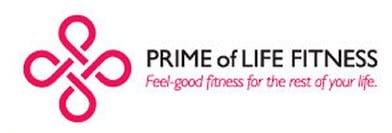If you're over 40, chances are you've had that dreaded moment of looking in the mirror and saying "Holy cow, what happened here?" It may be the gray hair or the wrinkles around the eyes. Or perhaps it was the aching shoulder or the extra 10 or 15 pounds that never go away.
in the mirror and saying "Holy cow, what happened here?" It may be the gray hair or the wrinkles around the eyes. Or perhaps it was the aching shoulder or the extra 10 or 15 pounds that never go away.
Whatever's making you feel old, take comfort in the knowledge that aging happens to all of us, and you have lots of company among the 76 million Baby Boomers. But you can also take heart that not all of the side effects of aging are inevitable. If you've found it harder to maintain an acceptable level of fitness after you turned 40, I've got four good reasons why (that's the bad news). The good news? With a little effort, you can make the bad news disappear.
The Bad News: You've lost muscle. The saddlebags on your thighs, your love handles and your low energy levels can all be blamed on your muscle loss. Unless you're actively engaged in regular resistance training, you're losing a half pound of muscle every year once you're in your forties. But you're not losing weight, are you? So not only are you losing muscle; you're gaining fat.
The Good News: Muscle is surprisingly easy to regain at any age. In one study of 1,700 people, young adults, middle aged adults and older adults (65-80 years old) all added statistically similar amounts of lean muscle weight after 10 weeks of resistance training (Westcott, et al., 2009). Muscle gives you a lean, fit appearance, and it burns more calories than an equivalent amount of fat tissue. Add a full-body resistance program just 2-3 days per week to see dramatic gains in lean muscle.
The Bad News: Your metabolism has slowed. You used to be able to eat like a horse and never gain weight, but now, just looking at that piece of cake adds another roll to your waistline. It's not your imagination: resting metabolic rate (RMR) declines about 3% per decade in most adults.
The Good News: Building muscle increases your metabolism. In fact, the decrease in resting metabolic rate is directly tied to the loss of muscle tissue (not to mention the replacement of muscle tissue with an equal or greater amount of fat.) Bottom line: keep the muscle if you want to keep your metabolism moving.
The Bad News: Your schedule has exploded with obligations. Kids, career, care giving for an aging parent, volunteer work. What ever happened to "me time"? There's no question that discretionary free time is at a premium as your obligations increase.
The Good News: A little exercise every day is all you need. The latest exercise guidelines from the American College of Sports Medicine (ACSM) recommend 150 minutes per week of moderate exercise to gain most of the health benefits of exercise. That's just 30 minutes, five days per week. In fact, getting a little exercise every day is easier and more sustainable than trying to get a lot of exercise infrequently. Strategic time management helps, too. With just a little creative thinking and strategic planning, it's easy to get the exercise you need.
The Bad News: You've developed muscle imbalances or structural abnormalities. By the time we hit 40, most of us have developed chronic muscle imbalances or structural abnormalities that can make exercise difficult or even painful. Whether it's a torn rotator cuff from a weekend softball game, or a weak hip abductor from years of sleeping on one side, injuries and muscle imbalances can cause structural compensation and pain in your workouts.
The Good News: A personal trainer or physical therapist can help. An experienced personal fitness trainer or a physical therapist can assess your posture and movement patterns to identify your structural imbalances. In many cases, resolving the issue is as simple as combining strengthening and stretching exercises in the right combination for your specific needs.
You surely can't turn back time, but with a few tricks up your sleeve, you can avoid some of the bad news that often comes with getting older. How has your fitness changed as you've aged?
(photo credit: Or Hiltch)


